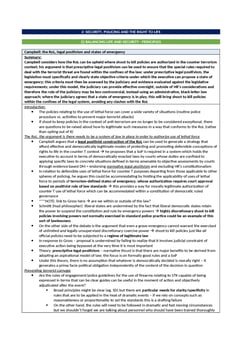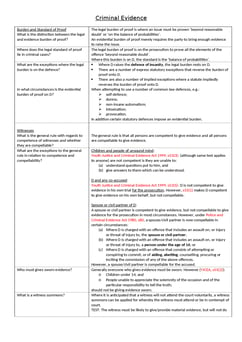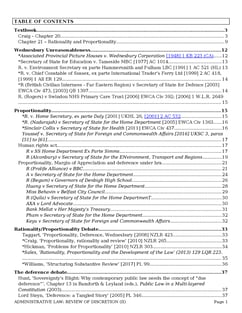Judgement for the case R v A (No 2)
Table Of Contents
Defendant was accused of rape and wanted to be permitted to question the victim over their previous relationship and her sexual activity immediately prior to the supposed rape.
The Youth Justice and Criminal Evidence Act prevented such questioning so as to avoid unnecessary humiliation of rape victims at trial. Defendant claimed that this denied him the right of fair trial (Article 6 of ECHR) and that he sought either a s.3 interpretation or a s.4 declaration.
HL said that since the evidence Defendant wished to bring forward was relevant to his case, and since article 6 was an absolute right, to deny him the ability to adduce such evidence would be to deny him his right. HL decided that to reconcile the legislation and the right under article 12, they would ask “whether the evidence was so relevant to the issue of consent that to exclude it would endanger the fairness of the trial under Article 6; and that where that test was satisfied the evidence should not be excluded”. This was an application of s.3 HRA 1998.
In this case the evidence Defendant wished to adduce was not so relevant that to exclude it would jeopardise the fairness of the trial and therefore Defendant’s appeal was dismissed.
Lord Steyn
It is logical to use S.3 widely so as to reconcile legislation with rights since presumably, if parliament were told about the rights their law was breaching then they would have changed it.
S.3 is a strong obligation and, where necessary, the courts should take a contextual and purposive approach, even where the meaning of the legislation is clear and the interpretation of HL appears linguistically strained. A s.4 declaration of incompatibility is the last resort since it neither guarantees rights or gives remedies whereas s.3 interpretations, indirectly, can.
Lord Steyn comes up with the test above.
Lord Hope
It is the courts’ duty to interpret and not legislate and therefore the courts should not be amending legislation.
RELATED CASES
For Further Study on R v A (No 2)

A collection of the best BCL notes the director of Oxbridge Notes (an O...
Need instant answers? Our AI exam tutor is here to help.
Ask questions 🙋 Get answers 📔 It's simple 👁️👄👁️
Our AI is educated by the highest scoring students across all subjects and schools. Join hundreds of your peers today.
Get StartedSimilar Cases
Related Product Samples
These product samples contain the same concepts we cover in this case.
| Criminal Justice, Security, & Human Rights | Fair Trial Rights And Secret Evidence Notes (117 pages) |
| BPTC Criminal Litigation | Silence Notes (31 pages) |


 Since 2010, Oxbridge Notes has been a trusted education marketplace, supplying high-quality materials from top achievers at universities like Oxford, Cambridge, LSE, Harvard, and Yale.
Since 2010, Oxbridge Notes has been a trusted education marketplace, supplying high-quality materials from top achievers at universities like Oxford, Cambridge, LSE, Harvard, and Yale.